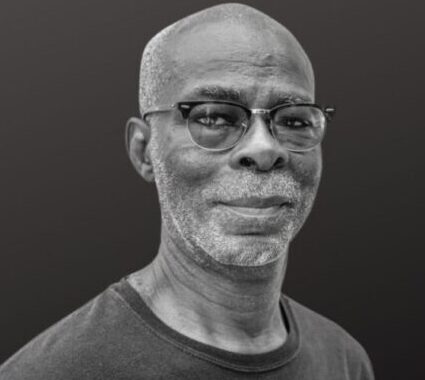
How To Buy ‘Air Force One’
Nigeria was in something of an uproar last week when they learned that in a supplementary budget proposal sent to the National Assembly, the government included N5.095 billion for a presidential yacht.
A presidential yacht? The term does not exist in the Nigerian political lexicon. Although not a strange concept in advanced militaries, the modern yacht is the precinct of ultra-wealthy celebrities who seek the thrills of open waters in obscenely luxurious accommodations.
At the high end, the Russian billionaire Alisher Usmanov introduced ‘Dilbar,’ a monstrous, $800 million, 512-feet superyacht which has saloons, staterooms, spas, cinemas, a helipad and an 82-foot swimming pool. Amazon founder Jeff Bezos’ “Koru” is similar: a 417-foot, $500 million superyacht that is served by a support super-boat, Abeona.
While the ordinary yacht may be cheaper than these marvels, it is not difficult to see how they might attract envy, or at least, admiration. In Nigeria, it is now part of our political discourse, courtesy of the appearance—reappearance, some say—of the word in Mr Bola Tinubu’s supplementary budget.
In a country riven by abject poverty and corruption in government, the national outrage was swift, with hostile indignation from the coast to the desert; on television, radio and social media; and from the streets to the boardroom.
The presidency, which has invested in an army of media-relations personnel, took notice. It deployed spokesperson Temitope Ajayi to the war front with the story that it was the navy which had requested the expensive craft.
He blamed others as well. The budget office, she said, should explain to the public why such expenditure should be accommodated now, considering the economic situation of the country.
And he decried ”the very simplistic way some of the line items are described by civil servants, who prepare the budget.”
And then, the mass media. “It is poor reporting to always reduce State House budgetary provisions to the President and Vice President,” she declared.
“When the State House makes provision for vehicles, it is reported as if it is the President that will use all the vehicles or eat all the food when a provision is made for food and catering services…”
Mr spokesperson, they most certainly can, they have, and—on the face of this evidence—they will. But that is not really the point.
Because the first thing that is confessed by this denial of responsibility for the yacht proposal is that this government, like some others we have seen, is not only idle, but has literacy issues. If it did any work, it would have prepared the supplementary budget rather than sub-lease the responsibility to aliens in the Boys’ Quarters.
If the presidency worked on the supplementary budget, it might have included in it, based on its experience of the last five months, what it really needed and what it needed it for. It did not. The supplementary budget was founded on greed, not need.
We know this because of the N28 billion, wall-to-wall provisions for renovations for the president and the vice-president of their homes and offices; in Abuja and Lagos; on land and in the air, including for the lavish purchase of unjustifiable luxury cars.
Keep in mind that the presidential villa has never lacked maintenance. In Buhari’s eight years in control, N37bn was spent on maintenance, reports Daily Trust, including in 2017 when rats allegedly ate up the president’s office as Muhammadu Buhari relaxed for 100 days in London.
Only weeks before Mr Tinubu took his oath of office, the presidential villa was renovated for him, the State House Medical Centre receiving a N21 billion makeover, complete with something called a Healing Garden, with no definition of who or what it heals, such as dubious budgets. In the 2023 budget, N14.8bn was provided for such items as Internet access, stationery and telephone charges alone.
In the 2021 budget, according to Daily Trust, the budgetary provision for refurbishing the villa was “N11.04bn in addition to the over N25bn reportedly spent on electricity and plumbing.”
It is on top of this that the new landlords of Nigeria, seemingly determined that if they are to do any work, such as repositioning the glasses on their faces and acknowledging the immense hardship of the Nigerian people, they must be provided with new luxuries wherever they are, and whatever time of the day or night. The supplementary budget is an argument that the comfort, extremely full stomachs, and opulence for the landlords is Priority #1.
It is in the light of this prioritisation, this abominable sense of what is right and wrong, and of time and place—indeed, of good and bad—that the question of the presidential yacht must be seen or read. That is my point about literacy. If the presidency says that the yacht appeared in the budget due to the negligence or sycophancy of some naval officers or the poor education of lowly civil servants working from home because they cannot afford transportation to the office, what does it mean if a presidency which delights in 100-car convoys and mile-long speeches did not eliminate the error when it noticed it? Or did it NOT notice?
It was no error, and no ghosts and gremlins should be blamed. The presidency inserted it, perhaps testing the winds before asking for “Air Force One” (the US president’s luxury Boeing 747 as opposed to our 737) in the next budget.
What is even more sickening—and a confirmation that the presidency inserted the yacht in the budget package—is the discovery that the yacht deal “has been agreed, signed, and delivered but not paid for.”
Affirming that last Friday, Ali Ndume, the Chief Whip of the Senate, said, “We queried the amount budgeted for the yacht, but it was signed for a dollar rate, and the new rate isn’t favourable. The budget was predicated for about N435, and now it is over N800.”
So who bought it, and how?
Keep in mind that the House of Representatives has already moved the allocation for the yacht to the nascent Students Loan scheme. And so, Nigeria somehow owns a presidential yacht that the president allegedly knows nothing about and cannot party in between Atlantic City and Bourdillon when he has a Lagos play date, but lacks the budget to pay for.
In other words, we are dealing with just how dangerous this government is. Only two months ago, for instance, it was declaring that it will lift 133 million Nigerians out of poverty. Last week, Betta Edu, the Minister of humanitarian affairs and poverty alleviation who made that announcement, cut that figure down by nearly two-thirds, stating that the government is working to uplift merely 50m.
How is the Tinubu government performing its addition by subtraction? Ms Edu says it is paying N25,000 to “a number of vulnerable households” for three months.
“This is 15 million households, which automatically amounts to about 61 million persons,” she said. “We have the people we want to reach. An addition of all these people together will give us a way to over 50 million persons that will be directly reached by the government.”
If you have tears left to shed, Nigeria, your pain is here.


